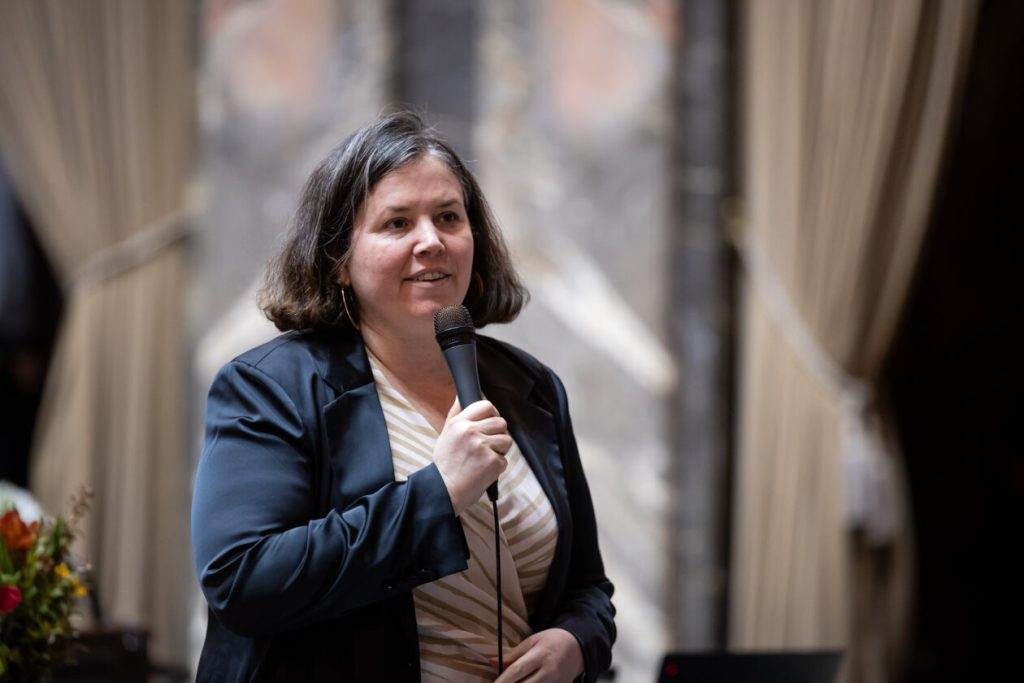Summarize this content to 2000 words in 6 paragraphs
State Sen. Sharon Shewmake, D-Bellingham, on the floor of the Senate in 2024. (Senate Democratic Caucus Photo)
State Sen. Sharon Shewmake is taking over as chair of the Senate’s Environment, Energy and Technology Committee, a wide-ranging clearinghouse for legislation on issues including artificial intelligence oversight, climate change impacts and clean energy deployment.
The Bellingham Democrat is following in the footsteps of influential past chairs Joe Nguyễn and Reuven Carlyle. The leadership role opened up after Nguyễn’s resignation from his Senate seat last month to become director of the Washington State Department of Commerce.
This is Shewmake’s third year in the Senate, and she previously served as a state representative for four years.
Shewmake is also an associate professor at Western Washington University in the College of Business and Economics, with a focus on environmental economics and energy policy.
The lawmaker steps into the role of chair at an interesting moment for the committee. Climate hawk Gov. Jay Inslee has left office after 12 years and voters in November endorsed the state’s hallmark carbon reduction program. The use of artificial intelligence is surging, and worries about cybersecurity, digital privacy and social media and kids are ongoing.
Shewmake considers herself “technological optimist,” while also expressing concerns about some tech issues.
The growing demand for more AI-computing data centers touches all of her committee’s focus areas. So how does the lawmaker view the electricity-gobbling tech infrastructure? “We can see [data centers] as economic growth and opportunity,” she said, while figuring out how to manage their energy impacts.
Federal policy is likewise trying to address data center demands. President Biden last week issued one of his final executive orders, which aims to expedite construction of digital infrastructure and energy on public lands.
“We’re facing a quadruple threat,” Shewmake said, with clean energy demands increasing due to data centers, the electrification of transportation and heating, increased industrial manufacturing, and efforts to stop using coal and natural gas for electricity.
Shewmake has expertise in energy and environmental issues, and she said she’ll tap her academic connections with some of the nation’s top researchers for information.
The senator wants to remove barriers to building clean energy plants, and ensure the installations work for the communities where they’re located. That could include having developers invest in social programs or other areas that help a community. She’s also eager to tackle challenges with modernizing the power grid and getting electricity plants online.
To help meet escalating electricity needs, Washington utilities, startups and developers are looking to emerging technologies such as small modular reactors (SMRs) that produce nuclear energy, fusion, geothermal and hydrogen power.
Shewmake said lawmakers should be energy tech agnostic in the policies that support new energy sources. “I should avoid picking winners to the extent that I can,” she said.
The senator acknowledged that she’s going to learn a lot as committee chair, particularly in the tech arena.
“I’m thrilled to be in this position,” she said. “It’s going to be really fun.”


